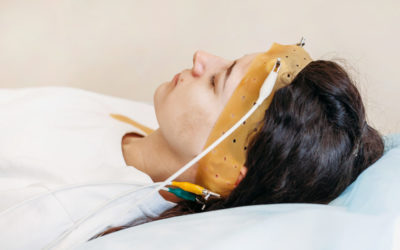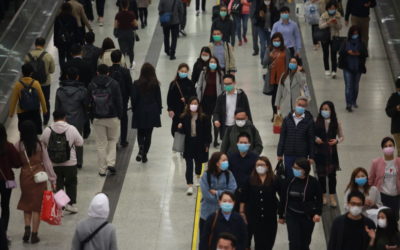Quick Hits
Daily brief research updates from the cognitive sciences

There are many questions still open about COVID and the brain. There is no doubt that long COVID exists, and this can have dramatic impacts on people’s lives. But just how much COVID impacts the brain is unclear – we know that many people suffer cognitive and neurological symptoms – commonly referred to as “brain fog”. But the precise mechanisms are unclear – it is likely a combination of factors that lead can lead to damage in the brain, though one major study was more optimistic noting that many of the conditions are treatable or that underlying previously unidentified conditions were coming to the surface.
In comes this recent study out of the Boston School of Medicine which has aimed to quantify this more precisely. They found that 13% of people who had been admitted to hospital for COVID developed serious neurological symptoms. Most commonly noted was encephalopathy which covers a broad range of symptoms or conditions that leads to impaired neurological functioning. Other conditions such as stroke were much rarer. Though we know that these symptoms can occur even if symptoms are mild, they are much more common with sever illness and worse health outcomes – this includes chances of being admitted to intensive care and being ventilated. There are also racial differences, but this is not clear why.
Of obvious concern is that with the numbers of severe infections being so high, particularly in the USA, this leaves an awfully large amount of people who have had, and still have long COVID and potential long-term cognitive impairment.

Andy Habermacher
Andy is author of leading brains Review, Neuroleadership, and multiple other books. He has been intensively involved in writing and research into neuroleadership and is considered one of Europe’s leading experts. He is also a well-known public speaker speaking on the brain and human behaviour.
Andy is also a masters athlete (middle distance running) and competes regularly at international competitions (and holds a few national records in his age category).
Reference
Anna M. Cervantes-Arslanian, Chakradhar Venkata, Pria Anand, et al.
Neurologic Manifestations of Severe Acute Respiratory Syndrome Coronavirus 2 Infection in Hospitalized Patients During the First Year of the COVID-19 Pandemic.
Critical Care Explorations, 2022; 4 (4): e0686
DOI: 10.1097/CCE.0000000000000686
More Quick Hits
Disagreements Improve Team Perception
We might assume that agreement would be high in high-performing teams – this study shows the opposite…
Brain Cells Adapt to Help You Stay Awake
Falling asleep is a funny thing – you don’t need to think about it when it happens but can cause many people who can’t incredibly frustration…
Dad Brain is Real
We know that mothers go through multiple physical and psychological changes after birth (and before) including change in brain structures but what about fresh fathers?
Mask-Wearing Makes You Better Behaved
This is a fascinating study that shows that wearing masks changes behaviour in subtle but important ways…
Coffee Can Help You Live Longer
Yes, that is good news for you (us) coffee drinkers. This supports plenty of more recent studies which have shown the health benefits of coffee…
Big Kids Die Earlier!
Before you panic – the conclusion in the title is based on research into mice not human beings – but there could potentially be some important insights for us human beings as well.






